Get Septic Inspection in Greeley, CO
Septic inspection services in Greeley, CO help property owners identify tank issues, drain field problems, and ensure proper system function for various residential and commercial projects.
If you own property in Greeley, CO, understanding the condition of your septic system is an important step in maintaining a safe and functional home or business. Septic inspections can help identify potential issues before they become costly problems, ensuring your property remains compliant with local regulations. Whether you're preparing for a sale, planning a renovation, or simply want peace of mind, exploring options for professional septic inspection services can provide valuable insights into the health of your system.
There are several local contractors in the Greeley area that offer expert septic inspection services, making it easier to compare available options and find a solution that fits your needs. Conducting a thorough inspection can help you plan future projects more effectively and avoid unexpected disruptions. Keep reading to learn more about how local service providers can assist with your septic system needs and what to consider when choosing the right professional for the job.
- Septic system inspection - needed when purchasing a home in neighborhoods around Greeley, CO to ensure the system is functioning properly.
- Septic tank evaluation - recommended if experiencing slow drains or foul odors in rural areas near Greeley, CO.
- Septic health check - essential for property owners planning to expand or modify their current septic system in Weld County.
- Septic system assessment - advised before selling a property to confirm the septic system meets necessary standards in Greeley suburbs.
- Septic inspection services - useful for homeowners in Greeley and surrounding communities who want to prevent potential system failures.
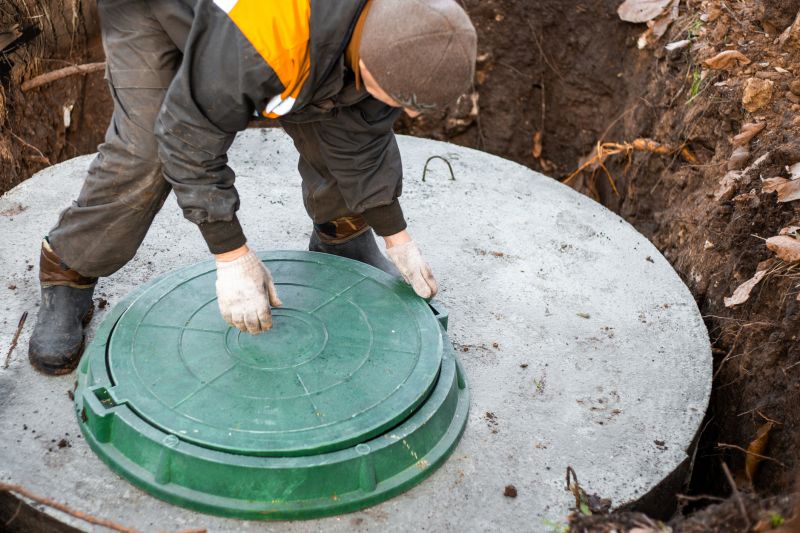
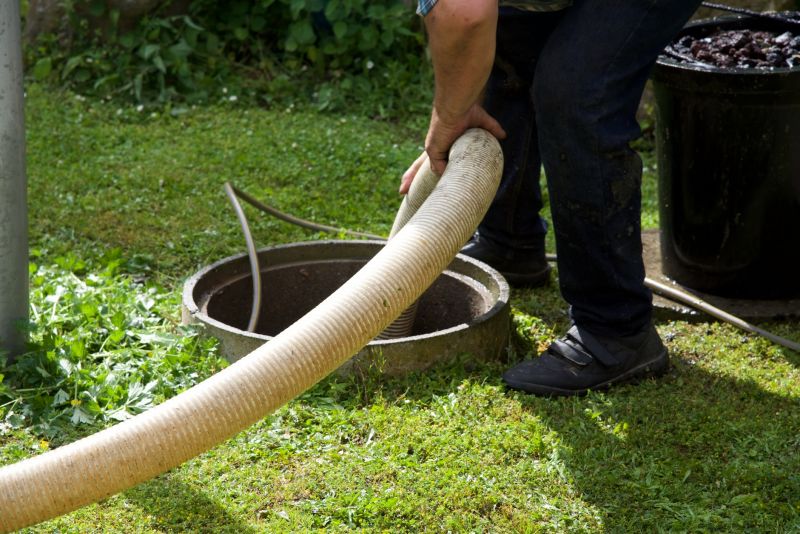
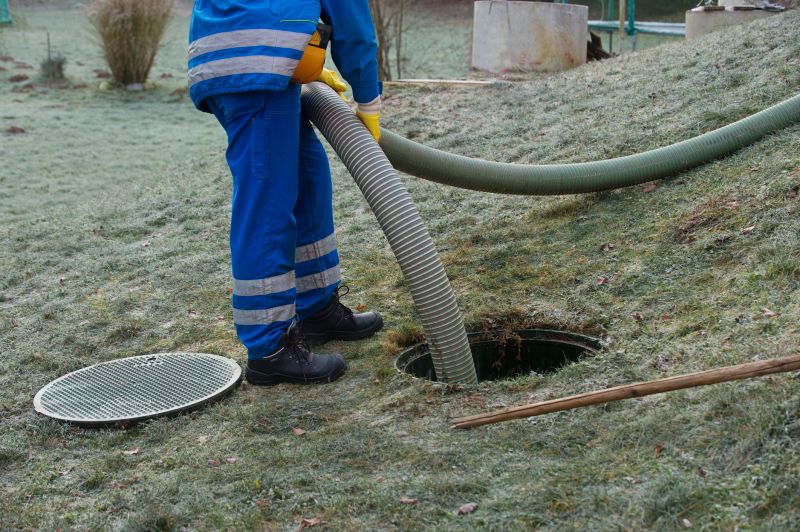
Septic inspection services involve a thorough assessment of a property's septic system to ensure it is functioning properly and is in good condition. During an inspection, a trained professional will examine the septic tank, drain field, and associated components to identify any signs of damage, deterioration, or potential failure. This process often includes checking for leaks, blockages, and the overall integrity of the system, as well as evaluating how well it is handling waste. Regular inspections can help homeowners prevent unexpected issues and extend the lifespan of their septic systems.
These services are particularly helpful in identifying common problems that can lead to costly repairs or environmental concerns. For example, a septic system that is clogged or has a failing drain field may cause sewage backups, unpleasant odors, or pooling of wastewater on the property. Early detection of issues like cracked tanks, roots infiltrating the system, or inadequate drainage can allow for timely repairs or maintenance. This proactive approach helps avoid emergencies, such as overflows or system failures, which can disrupt daily life and lead to significant expenses.
Septic inspection services are often used by homeowners in rural or semi-rural areas, especially those who rely on septic systems instead of municipal sewer connections. These inspections are also important during real estate transactions, where buyers and sellers want to confirm the condition of the septic system before completing a sale. Property owners planning to upgrade or replace their existing systems may also seek inspections to assess the current state and determine necessary improvements. Whether for routine maintenance or troubleshooting specific issues, local service providers can provide the expertise needed to keep septic systems functioning smoothly.
Understanding when a septic inspection is needed can help homeowners avoid costly repairs and ensure their property remains safe and functional. Common signs that an inspection may be necessary include slow drains, gurgling sounds in plumbing, or foul odors around the septic area. Additionally, if a property has experienced flooding, heavy rainfall, or if it’s been several years since the last inspection, scheduling an assessment can be a prudent step. Connecting with experienced local contractors ensures that inspections are thorough and tailored to the specific needs of properties in Greeley, CO, and nearby communities.
The overview below groups typical Septic Inspection projects into broad ranges so you can see how smaller, mid-sized, and larger jobs often compare in Greeley, CO.
In many markets, a large share of routine jobs stays in the lower and middle ranges, while only a smaller percentage of projects moves into the highest bands when the work is more complex or site conditions are harder than average.
Smaller Repairs - Routine septic inspections in Greeley typically cost between $250 and $600. Many minor repairs and system checks fall within this range, depending on the system size and accessibility.
Standard Inspection - A comprehensive septic inspection usually ranges from $400 to $800. Most local contractors handle these inspections within this band for typical residential systems.
Full System Replacement - Replacing an entire septic system can cost between $3,500 and $7,000 or more. Larger, more complex projects in the Greeley area may push costs above this range, especially for extensive site work.
Advanced or Specialized Services - For advanced diagnostics or specialty services, costs can vary from $1,000 to over $5,000. Such projects are less common and typically involve complex or aged systems requiring detailed evaluation.
Actual totals will depend on details like access to the work area, the scope of the project, and the materials selected, so use these as general starting points rather than exact figures.
Drain Field Inspection - Professionals assess the condition of drain fields to ensure proper wastewater absorption, similar to septic system evaluations.
Septic Tank Pumping - Service providers perform septic tank pumping to maintain system functionality, requiring similar planning and equipment as inspections.
Septic System Repairs - Local contractors handle repairs to septic components, which often involves diagnosing issues identified during inspections.
Soil Testing and Evaluation - Soil testing for drainage suitability shares planning and analysis skills with septic system assessments.
Wastewater System Maintenance - Routine maintenance of wastewater systems involves inspection techniques comparable to septic evaluations.
Drain Field Replacement - Replacing drain fields involves site assessment and planning skills similar to those used in septic system inspections.
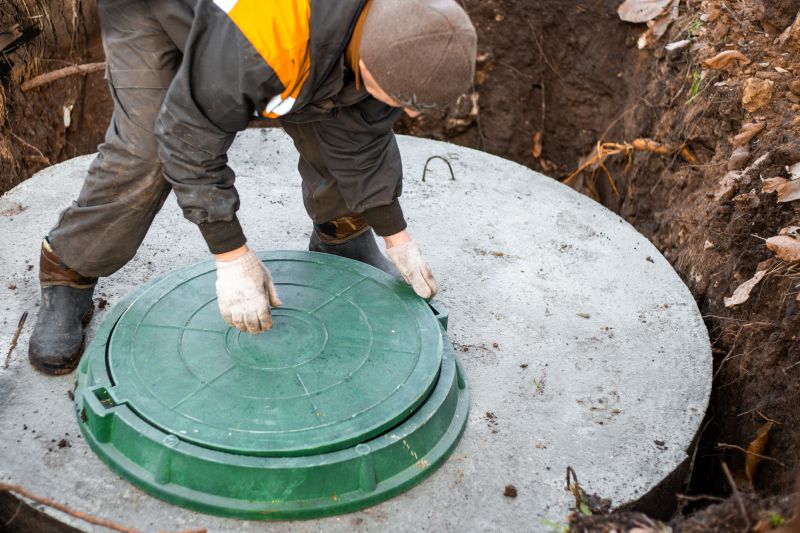
When selecting a contractor for septic inspection services in the Greeley, CO area, it is important to consider their experience with similar projects. An experienced service provider will have a solid understanding of local septic systems and common issues specific to the region. This familiarity can help ensure the inspection is thorough and accurate, providing peace of mind that the system is functioning properly and identifying potential concerns early. Homeowners should look for local contractors who have a history of working on properties similar to theirs, as this often indicates a familiarity with the unique challenges and requirements of the area’s septic systems.
Clear, written expectations are essential when comparing local service providers for septic inspections. A reputable contractor will be able to provide a detailed outline of what the inspection will cover, including any specific tests or assessments that will be performed. This transparency helps homeowners understand exactly what to expect and ensures there are no surprises after the inspection is completed. When evaluating options, it’s helpful to ask for a written description of the scope of work, so that expectations align and the process is clearly understood by both parties.
Good communication and reputable references are key indicators of a reliable septic inspection service provider. A professional contractor will be responsive to questions and willing to explain their process in understandable terms. Additionally, seeking references or reviews from past clients can provide insights into the quality of service and the level of professionalism. While the website introduces homeowners to local options, it’s important to remember that the site itself does not perform the work. Instead, it helps connect homeowners with trusted local contractors who can handle the inspection, making it easier to compare and find a service provider that meets the specific needs of the property.
Property owners in Greeley, CO use Septic Inspection services for practical projects around their homes and businesses. This guide focuses on everyday jobs and straightforward project options.
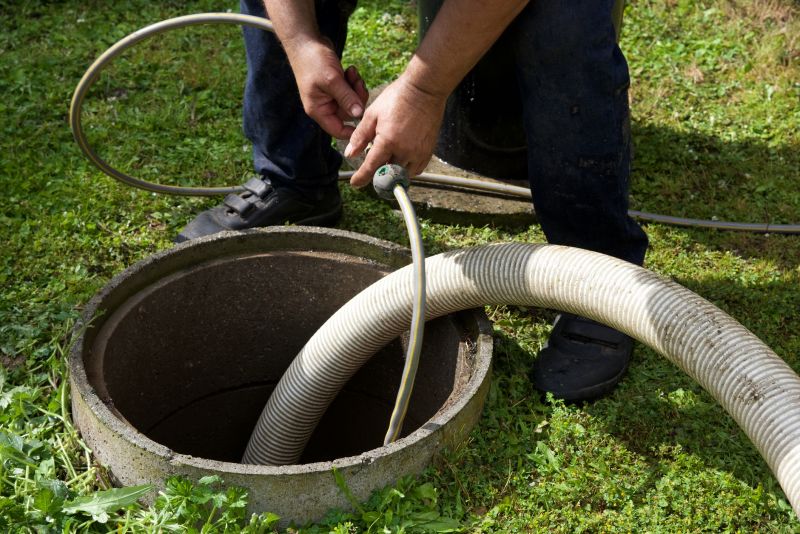
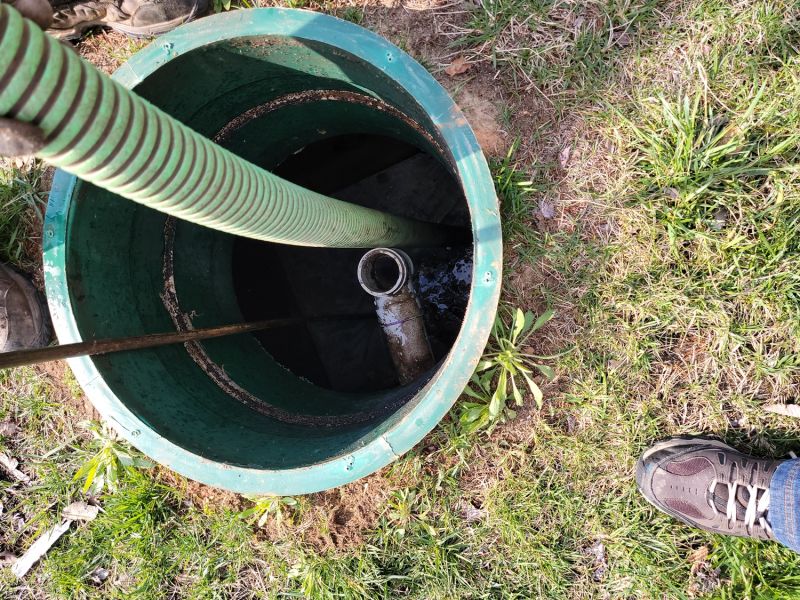
Septic inspection services are often needed when property owners in Greeley, CO are preparing to buy or sell a home with an existing septic system. Regular inspections can help identify potential issues before they become costly repairs, ensuring the system functions properly and meets local regulations. Homeowners may also seek these services if they notice signs of trouble, such as slow drains, odors, or standing water near the septic area, to prevent more significant problems down the line.
Additionally, property owners might look for septic inspection services when planning renovations or additions that could impact the septic system’s capacity or performance. Routine inspections can be a helpful way to maintain the system’s longevity and avoid unexpected failures. Local contractors experienced in septic systems can provide the expertise needed to assess the condition of the system and recommend necessary maintenance or repairs.
What is involved in a septic inspection? A septic inspection typically includes evaluating the condition of the septic tank, checking for signs of leaks or backups, and assessing the overall system functionality to ensure it is operating properly.
Why should I schedule a septic inspection before buying a home? A septic inspection can identify potential issues with the system that might require repairs or replacement, helping buyers make informed decisions and avoid unexpected costs.
How often should a septic system be inspected? Regular inspections are recommended every 3 to 5 years to maintain system health and prevent costly failures, especially in areas like Greeley, CO with specific local conditions.
What signs indicate that a septic system may need attention? Signs include slow draining fixtures, foul odors around the septic area, standing water or lush grass over the drain field, and backups in plumbing fixtures.
How do local service providers handle septic inspections? Local contractors typically perform thorough evaluations of the septic system, including visual inspections and possibly using specialized tools to assess tank condition and system performance.
Septic System Inspection - Property owners can schedule inspections when buying or selling a home to ensure the septic system is functioning properly.
Preventative Maintenance Checks - Regular inspections can help identify potential issues early, avoiding costly repairs or system failures.
Troubleshooting System Problems - When experiencing slow drains or backups, inspections by local contractors can pinpoint the source of the issue.
System Upgrades or Repairs - Inspections can guide property owners in planning necessary upgrades or repairs to meet current standards.

If you are thinking about Septic Inspection for a property in Greeley, CO, this guide is meant to help you understand the work, the typical project types, and how different options might fit your plans.
When you are ready, you can use the quote form on this page to share a few details about your project. From there, local pros can review the basics and respond with options that match what you have in mind.



